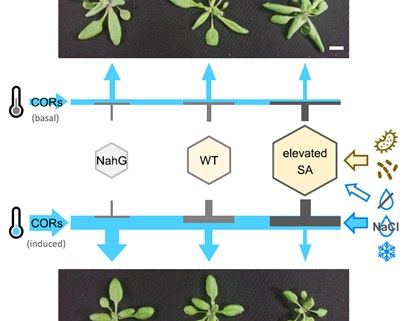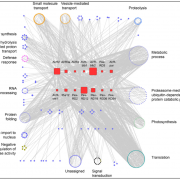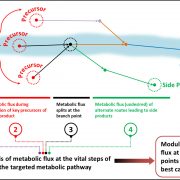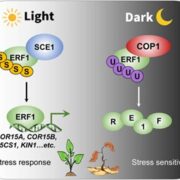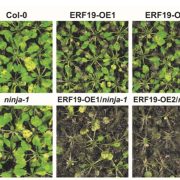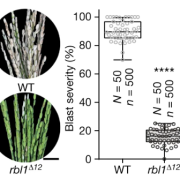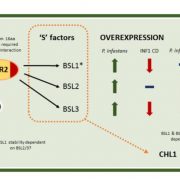Altering cold-regulated gene expression decouples the salicylic acid–growth trade-off
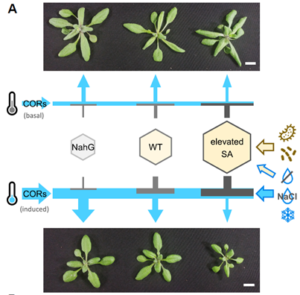 Enhancing plant defense against pathogens and pests often incurs a cost to essential physiological functions such as growth and reproduction, creating a trade-off. This phenomenon is evident in genetic studies across various plant models and agricultural breeding programs. Salicylic acid (SA) is a well-known phytohormone essential for basal immunity and systemic acquired resistance; however, its overaccumulation penalizes growth. Ortega and colleagues established a panel of Arabidopsis transgenic lines expressing a broad range of SA levels to study the effects of SA on growth, disease resistance, and abiotic stress tolerance. Interestingly, they observed that cold-regulated (COR) genes are repressed by increasing SA levels in a dose-dependent manner. Consequently, high-SA (hiSA) lines, which are smaller under unstressed conditions, grow even less when the temperature is lowered. However, strikingly, if COR genes are constitutively overexpressed in the hiSA lines, the growth defect can be rescued without compromising defense. This breakthrough suggests that the low-temperature response in plant can decouple the SA-mediated growth-defense trade-off, which potentially serving as an important strategy for balancing plant growth and immunity, thereby improving agricultural productivity. (Summary by Ching Chan @ntnuchanlab) Plant Cell 10.1093/plcell/koae210
Enhancing plant defense against pathogens and pests often incurs a cost to essential physiological functions such as growth and reproduction, creating a trade-off. This phenomenon is evident in genetic studies across various plant models and agricultural breeding programs. Salicylic acid (SA) is a well-known phytohormone essential for basal immunity and systemic acquired resistance; however, its overaccumulation penalizes growth. Ortega and colleagues established a panel of Arabidopsis transgenic lines expressing a broad range of SA levels to study the effects of SA on growth, disease resistance, and abiotic stress tolerance. Interestingly, they observed that cold-regulated (COR) genes are repressed by increasing SA levels in a dose-dependent manner. Consequently, high-SA (hiSA) lines, which are smaller under unstressed conditions, grow even less when the temperature is lowered. However, strikingly, if COR genes are constitutively overexpressed in the hiSA lines, the growth defect can be rescued without compromising defense. This breakthrough suggests that the low-temperature response in plant can decouple the SA-mediated growth-defense trade-off, which potentially serving as an important strategy for balancing plant growth and immunity, thereby improving agricultural productivity. (Summary by Ching Chan @ntnuchanlab) Plant Cell 10.1093/plcell/koae210


